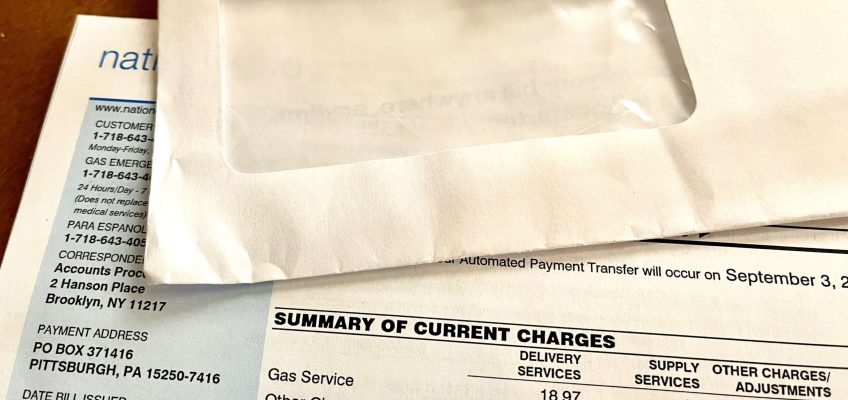“Despite her focus on affordability, Gov. Hochul has yet to change any of our policies to bring down energy costs. Repealing the 100-foot rule can be the start.”
(Jeanmarie Evelly/City Limits)
From community boards to campaign signs, coffeeshops to Reddit threads, one single word has come to dominate the discourse of everyday New Yorkers: affordability. Most people are feeling the pressure of rising prices, and it’s no different when it comes to exorbitant energy bills which have become the unwelcome norm.
Rate hikes for Con Edison’s customers have recently gone into effect, leading many people to share their anguish on social media over the skyrocketing costs of their monthly payments for electricity and gas. The bills, which for some customers have resulted in increases of more than $70 a month, have sparked fierce pushback, with ratepayers condemning the corporate profiteering of New York State’s investor-owned utility companies.
Disadvantaged New Yorkers—particularly low-income people and people of color—face the greatest burden because they are required to spend, on average, a disproportionate amount of their household income on energy bills. On top of that, they are more likely to live in older, less energy-efficient homes that require more energy to heat and cool, raising their energy bills even higher.
Utilities make money by building new methane gas infrastructure and charging New Yorkers to cover the cost, regardless of whether these expenses make financial sense or align with the state’s climate goals. For decades, this business model has allowed utilities to constantly increase their profits while customers face rate hike after rate hike.
The pushback and pressure on lawmakers to finally address the energy affordability crisis helped pass a new bill this year that would eliminate the 100-foot rule, an obscure law that allows New York energy corporations to spend $200 million of customer dollars every year. If signed into law by New York State Gov. Kathy Hochul, utilities will have one less pathway to exploit New Yorkers who deserve access to affordable heating and cooling.
Under the 100-foot rule, utility companies are required to connect every building within 100 feet of an existing gas line to the methane gas system, even though more modern, more affordable, and energy efficient options exist. Because utilities recuperate expensive infrastructure costs from customers, the more gas lines Con Edison, National Grid, and other utilities build, the more money their shareholders make off rate increases.
And while shareholders profit, New Yorkers are being crushed as they are forced to cover the cost of expanding a sprawling, leaking, and outdated gas infrastructure in the form of rate hikes. Even before its most recent rate hike was implemented, Con Edison had already requested another increase, which—by their own estimates—would cost customers around $46 more per month and more than $500 a year. National Grid and Central Hudson customers will soon see higher bills as well.
In fact, an analysis from the Alliance for a Green Economy shows that since the start of 2022, every major gas utility in the state has raised the cost of energy for their customers with customers of Con Edison, National Fuel, Central Hudson, and National Grid of Long Island experiencing an average annual increase of $312 in their gas bills between 2023 and 2025. Nearly 1 in every 7 households are behind on their energy bills, with nearly $2 billion total in arrears. Residents are being forced to choose between heating and cooling their homes or paying for groceries, rent, and other basic necessities.
New Yorkers across the state are demanding change. They are demanding affordability. The 100-foot rule is one of the many policies that forces New Yorkers to pay more for the cost of expanding the methane gas system than the actual cost of the gas itself. At a time when costs are going up, households shouldn’t be spending millions of ratepayer dollars on outdated gas pipelines that enrich CEOs and shareholders.
Despite her focus on affordability, Gov. Hochul has yet to change any of our policies to bring down energy costs. Repealing the 100-foot rule can be the start. Eliminating the outdated law would immediately help save ratepayers money, curb future utility rate hikes, and move us toward a more just and climate-safe energy system.
We need swift, decisive action from Governor Hochul to deliver on the promise that ratepayers across the state are desperately asking for. We need her to put pen to paper and repeal the 100-foot rule.
Lonnie J. Portis is the director of policy and legislative affairs at WE ACT for Environmental Justice.
The post Opinion: NY Utilities Are Exploiting an Outdated Law to Raise Energy Bills appeared first on City Limits.


Leave a Reply